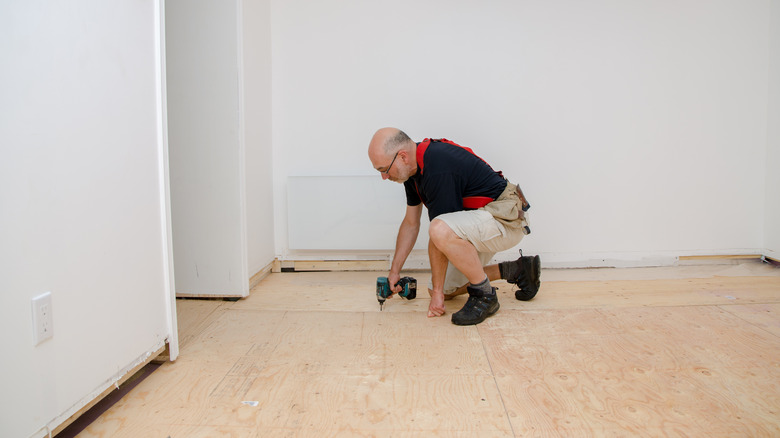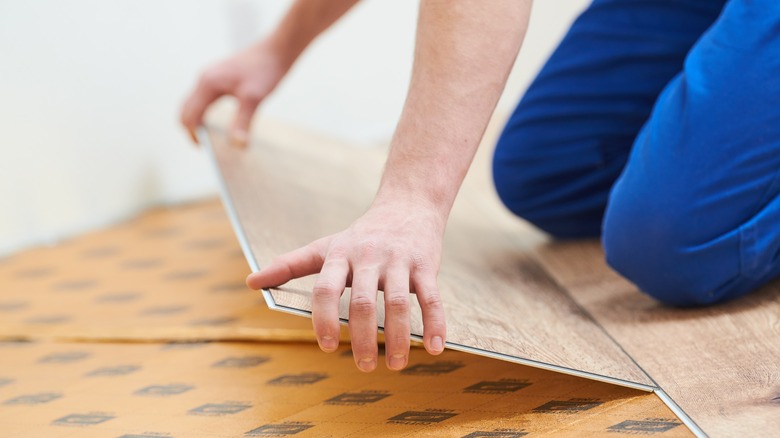The Type Of Basement Flooring You'll Regret When Selling Your Home Later On
Basements don't have to be dark and dingy, but finding the right flooring is key to ensuring you keep or increase your home's value when it comes time to sell. There are all kinds of flooring options out there, but when it comes to selling your home, it's important to explore options like tile and vinyl because hardwood and carpet won't do your humid basement any favors.
Hardwood floors in a basement come with several issues, the first being that it requires another subfloor above the concrete base to install because wood cannot be nailed into concrete. Solid hardwood floors are also easily affected by water, meaning that high humidity or flooding will cause warping or water damaged wood floors. Carpet is another option that can lead to disaster when installed in a basement. Similar to wood, it can be easily ruined by any signs of water. If humid or wet, carpet can attract mold and must be replaced if flooding occurs. Although carpet can seem like a comfortable option for a basement, it can quickly become a problem at the first sign of water.
Though hardwood and carpet floors are out, plenty of other options will make your basement feel comfortable without the threat of ruin. When it comes to basements, the key is to find waterproof or moisture-resistant flooring.
Better types of flooring for your basement
One of the best materials for basement flooring is tile. Tile is a low-maintenance flooring option for basements. Being waterproof, it conquers spills and humidity fluctuations. Not only does it handle water well, but tile is also long-lasting and comes in a wide variety of colors and types. Some of the most popular types of tile for basements are porcelain and ceramic.
Porcelain tiles are very durable and water-friendly, allowing them to work well in a basement, though they are more expensive than other types of tile. Ceramic tiles are also great for basement flooring and are cheaper but less comfortable. However, if tile flooring isn't for you, vinyl floors are also acceptable and won't lead to rot or ruin. Luxury vinyl plank is comfortable, affordable, and often mold-resistant. It also fits more aesthetic styles compared to tile. Though they are usually water-resistant and not waterproof, they are still a promising flooring type for places with the potential to experience water damage.
Hardwood and carpet flooring aren't ideal for a basement. Other options still have a great look and feel without being easily damaged, and some might allow you to get a similar aesthetic to solid hardwood. Whether tile, vinyl, or another water-resistant or waterproof material, you won't have to worry about your basement flooring when it comes time to sell.

